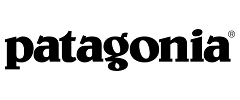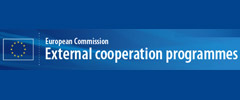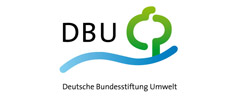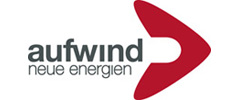Armenia Tapping Resources
Poverty elimination, organic farming and improvement of water supply and sanitation in rural areas of Armenia
29.03.2005
| Countries: | Armenia |
| Donors: | Ministry of Foreign Affairs, Development Cooperation, TMF programme, The Netherlands |
| Partners: | AWHHE |
| Issues: | Water & Sanitation, Biodiversity & Food |
| Duration: | 02/2005 - 12/2007 |

Armenia, a small country in the Caucasus region, re-established its independence in 1991, after the Soviet Union broke apart. Poverty in Armenia is widespread with 54% of the population having consumption levels below the poverty line (Poverty and Social Impact Analysis, 2003).
The overall goal of the “Tapping resources” project, funded by the Dutch Ministry of Foreign Affairs, is to reduce poverty and to improve environmental and living conditions. This is being done through the implementation of applied, sustainable water, sanitation and agricultural projects and through capacity building and strengthening democracy. The project in Armenia is carried out in three villages by the Armenian Women for Health and a Healthy Environment, AWHHE and Women in Europe for a Common Future, WECF.
Poverty is the major problem for the majority of the rural Armenian population. The main causes are high unemployment rate, low pensions and salaries, unfavourable conditions for agriculture, costs of health services and high expenditure on heating. Many people do not have enough money for essentials such as food, heating, items of personal hygiene, clothing and/or medicines. E.g. many inhabitants of the project village Hayanist cannot afford to visit a doctor or buy medicines when necessary. There are many people with health problems who do not receive any treatment at all.
The majority of the inhabitants of Hayanist and Fantan do not have access to safe drinking water. The quality of the water of the wells is not controlled, the wells are not protected, and the water is not treated. In the villages the quality of sanitation is poor. Most households and schools have latrines with shallow pits. The pits are not sealed and therefore these latrines provide a source for ground water pollution.
In particular sanitation in schools is in extremely bad condition: the outdoor latrines are located far away from the schools, they smell badly and are unhygienic. Due to the very cold Armenian winters and the hot summers this lack of safe sanitation is hazardous for both teacher’s and children’s health. During winter toilet users suffer from the cold, during summer the heat attracts many flies and produces a bad smell.
To improve the quality of sanitation in
the schools, hand-wash facilities and dry urine diverting toilets were
constructed in conjunction with the schools, for both schools and households. The dry urine diverting toilets serve as examples how to improve the sanitary and
hygienic condition in particular for the children on a sustainable manner; how
to protect soil and groundwater against infiltration of human excreta. Now the
pupils and school staff use comfortable, warm, clean and odour-free toilets.
Local farmers reuse the sanitized toilet-products in the agriculture.
The toilets do not waste water for
flushing. For a country, like Armenia, which suffers from droughts, this is a
very important aspect. The results of the demonstration project could be an
inspiration for decision makers in Armenia for future planning on wastewater
and sanitation systems.
Tapping resources
As a part of the 4 year TMF project “Tapping resources” granted by the Netherlands Ministry of Foreign Affairs, the Yerevan-based NGO “Armenian Women for Health and a Healthy Environment” (AWHHE) in cooperation with WECF will conduct activities aimed at poverty reduction through improved water and sanitation, waste management, organic farming and increased community participation in communal development. The joint project aims at working towards realization of – among others – the Millennium Development Goals 7 (environmental sustainability, esp. water) and 5 (improvement of maternal health) on a concrete local level.
Activities will be conducted in three villages in the vicinity of the
capital Yerevan: Hayanist, Dzorakhbiur in Ararat province (marz) and
Fontan in Kotayk province (marz). In February and March 2004, a
socio-economical and gender survey has been conducted in these villages
in order to clarify the current situation and to assess the villagers’
most urgent needs and interests.
Armenia has managed to recover
partially from the severe economic crisis caused by the break-up of the
Soviet Union and war with Azerbaijan over Karabakh (1991-1994), but the
positive effects of an ambitious IMF-sponsored economic liberalization
program that resulted in positive growth rates in 1995-2003 are mostly
felt in the countries capital Yerevan, while rural areas still suffer
severely from the post-soviet crisis.
The fruit growers of Dzorakhbiur,
for example, lost their orchards during the crisis. War is over, but
there are still no trees, because people are too poor to plant new
trees and pay the energy for pumps needed for irrigation. The
TMF-project partners will address the problem and find sustainable
solutions together with the farmers and with the support of
international experts.
Although Armenia is rich in water and the villages have their own
springs or wells, drinking water is not always available for the
population and in certain cases is of insufficient quality to be used
for drinking. Again, poverty plays a role when the villagers of Fontan
cannot afford to even pay the energy necessary to make the pump work
that pumps drinking water from the spring to their village.
In
Dzorakhbjur the spring water is contaminated from improper waste
disposal, human fecal bacteria from pit latrines and insufficient
caption of the spring itself. Eco-san toilets will make an important
contribution to solve this problem.
The project aims at creating a replicable model for finding and
implementing multi-stakeholder informed solutions to acute problems.
The constant involvement of the villagers themselves is thus an
important asset of the project.
AWHHE will implement pilot demonstration projects in the three villages to address urgent problems and needs. A focus will be on involving women in project implementation and local decision-making. The demonstration projects will help to identify legislative, institutional and cultural barriers, as well as catalysts and appropriate technologies. The lessons will be used to replicate and upscale the results and prepare recommendations for national and international policy making, in particular in reaching the Millennium Development Goals. The international policy work will be carried out within the framework of the WSSD partnership Women for Water, Water for Women, of which WECF is one of the funding members.
Related News
Armenia Policy Dialogue on Agenda2030 - Women2030 Program, Yerevan, 18 June 2018
WECF and Armenian partners invited 30 Civil Society Organisations and Government representatives to prepare input for Agenda2030 UN top in July
02.07.2018
Introducing a new phenomenon in Armenia: Energy Cooperatives
WECF along with Belgian and European Energy Cooperatives explore possibilities of implementing sustainable energy in Armenia
11.10.2016
Highlights of CLEEN in 2015 – A review in pictures
After the launch of our CLEEN-Project in Georgia, Ukraine, Armenia and Moldavia in January 2015, our partner organizations have done a lot of activities to achieve their goals. Let us have a review about the present results
22.04.2016
WECF’s ‘CLEEN’-Project in the race for an EUSEW Award
CLEEN, an implementation and networking concept, with which CSOs and further important multipliers are trained and supported to expand their network in 4 project countries (Georgia, Armenia, Moldova, and Ukraine) in order to raise awareness and ensure citizen participation in energy efficiency and renewable energy
26.02.2016
“The Price of Electricity, Gas and Other Energy Sources is Rising Day by Day”
Sub-grant organization Yeghvard holds press conference on WECF’s energy project CLEEN
04.09.2015 | Carmen Chan
30 subgrantee organizations from Armenia, Georgia, Moldova and Ukraine joined first CLEEN trainings in Georgia and Ukraine
Two NGO trainings took place in the frame of the CLEEN project, which aims as overall objective to build regional partnerships of civil society organizations (CSOs) in the 4 countries with a focus on energy efficiency
01.08.2015
WECF proud to be amongst the few nominees for prestigious EUSEW Sustainable Energy Award
WECF’s Energy Project Shortlisted for top 10 energy projects, leaving behind hundreds of contestants
18.06.2015
Call for Participation of subgrantees in Mentoring Programme local energy project CLEEN
WECF Partners are looking for Sub-grantees in Moldova, Armenia, Georgia and Ukraine. Application open until May 15
15.04.2015
Successful CLEEN start-up meeting in Munich with partners from Moldova, Georgia and Ukraine
From March, 10 – 12th the CLEEN start-up meeting was held in Munich. CLEEN (Civil society Local Energy Efficiency Network) is a 3-year-EU-project with the geographical focus of Republic of Armenia, Georgia, Republic of Moldova and Ukraines in Armenia, Georgia, Moldova and Ukraine
18.03.2015
Armenian women: Actors of change in sustainable agriculture
WECF supports Armenian women to stand up for chemical-free rural development
01.05.2014 | WECF France









































